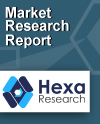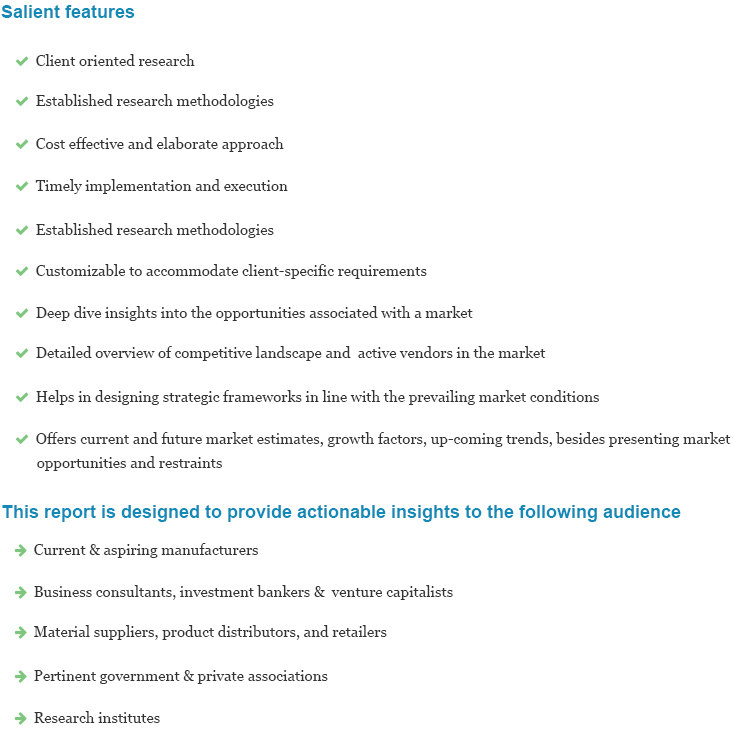
Bio based PET Market Analysis, Market Size, Application Analysis, Regional Outlook, Competitive Strategies and Forecasts, 2016 To 2024
- Published: December, 2016
- Format: Electronic (PDF)
- Number of pages: 89
- Industry: Renewable Chemicals
The global bio based PET market, in volume terms stood at 496 kilo tons in 2015. It is expected to grow (in terms of volume) at a CAGR over 42% during the forecast period (2016 to 2024). Growing awareness could drive the market. Stringent environmental regulations to promote environment-friendly products may contribute significantly to market demand in the next eight years. The introduction of bioplastics as a substitute in packaging and automotive industries may catapult demand. In addition to this, fluctuating prices of crude oil and heightened concerns regarding greenhouse gas (GHG) emissions can impel the bio based polyethylene terephthalate (PET) industry.
Bio based PETs are biodegradable products derived from monoethylene glycol (MEG) and terephthalic acid (PTA). While 30% of renewable PET is made of MEG, the remaining is sourced from purified PTA. Development of 100% bio-PTA is the main objective of the bio based polyethylene terephthalate industry. Companies such as Anellotech and Virent are running a pilot plant for bio-PTA development. Companies, like Toray Industries and the Coca-Cola Company are striving towards developing 100% renewable PET, via business collaborations.
The primary sources of bioplastics are bio based precursors (such as polylactic acid), bacteria, and biomass. Bacteria include Polyhydroxyalkanoates (PHA) or Polyhydroxybutyrate (PHB). These are used in the production of cups, bottles bags, beds, carpets, furniture, tools, and films, among other packaging materials. The wastes from these materials emit nearly 30 to 70% less carbon dioxide as compared with conventional plastics.
U.S.’s Environmental Protection Agency (EPA) and the European Commission discourage the use of chemically derived products, and instead focus on the sustainable ones. Sustainable products in this regard, refer mostly to bioplastics and biodiesel. The Montreal and the Kyoto protocols taken to by a number of countries, aim at reducing GHG emissions globally. Such steps have impelled manufactures to consider alternative options.
Renewable PET is gaining much importance these days. Furthermore, stringent environmental regulations that promote environment-friendly products can fuel the market in the forthcoming years. Several governments are taking initiatives to spread awareness about the ill effects of carbon emissions. Coca-Cola has introduced ‘plant bottle’, a concept that focuses on raising environmental consciousness. The company intends substituting polyethylene terephthalate bottles with plant bottles by the end of 2020.
A major restraint in the global bio based PET market is the uncertain supply of raw materials, such as ethanol. This owes to the high demand for ethanol in food & beverages & the biofuel industries. This in turn may hinder the availability of bio MEG which could inhibit the growth of the renewable PET industry. Moreover, fluctuating crude oil prices also negatively affect production costs. Furthermore, favorable policies from the Brazilian & U.S. governments for biomass based sustainable fuel may rev up the demand for bio ethanol. This can hinder the production of MEG, further affecting the prices of polyethylene terephthalate.
The global bio based PET market is divided into applications and regions. Applications include consumer goods, technical (automotive & electronics), and packaging (bottles), and other packaging. Packaging dominated the industry in 2013 with a 75% share. Bio based PET is mainly used for packing carbonated soft drinks (CSD). Surging beverage consumption in developing nations, like Brazil, Russia, India, China and South Africa (BRICS) could propel market demand during the forecast period.
Technical applications may expand considerably because of demand for lightweight materials in automotives. Sustainable polyethylene terephthalates weigh less as compared with their petrochemical alternatives. These are used extensively in the exteriors of automotives. Companies, such as AT&T, Toyota Motors, and Nissan declared the use of bioplastics in their product portfolios. This is likely to boost industrial demand in the years to come.
Regions in the global bio based PET market are North America, Europe, Asia Pacific, and Rest of the World (ROW). Asia Pacific dominated the market in 2015, owing to high demand from India and China. Increasing consumption of alcoholic beverages and CSD and favorable government standards could fuel regional demand. Additionally, initiatives taken by the APC (Australian Packaging Covenant) may stimulate product demand. The government of Thailand encourages soft loans to provide financial aid to the bioplastics industry in the country. This initiative may lead to newer investments in ‘product manufacturing’ in the near future.
Europe is projected to grow considerably due to the European Commission’s promotion of and inclination towards bio based products. It also emphasizes greatly on the reduction of chemical based products and GHG emission.
The U.S. government has passed the Federal Farm bill that urges federal agencies to procure bioplastics products. This can augment the bio based PET industry from 2016 to 2024. North America may grow at a CAGR of 41% during this period. Focus on eco-friendly & sustainable packaging could drive the market. Latin America can witness robust growth till 2024. This attributes to the wide supply of sugarcane feedstock from Brazil.
Key players in the global bio based PET market are Toray Industries, Coca-Cola Company, M&G Chemicals, and Toyota Tsusho. Players often engage in strategic partnerships with bio based MEG producers to ensure the steady supply of raw materials. Raw material suppliers such as, Virent and Anellotech have invested heavily in the development of 100% bio-PTA. Coca-Cola markets its bio-PET bottles under the name ‘PLANTBOTTLE’. Other brands in the industry are PLANT FIBER and GLOBIO. Companies, like Ford Motors, The Coca Cola Company, Proctor & Gamble, and Heinz & Co., focus on the development and production of 100% bio based PET products.
In 2013, Gevo collaborated with Renmatix for the conversion of cellulosic sugar to renewable components. These include bio based packaging materials and bio based MEG. In the same year, Toyota Motors declared the use of bio based PET in the floor carpets, seat trims, and other interior parts of Sai, its gasoline run hybrid car. Toyota also signed a 10 year contract with Brazil based Petrobras for nearly 375 gallons of bio-ethanol. This contract would ensure the steady supply of bio based MEG at Toyota Tsusho’s subsidiary, Greencol Taiwan Corporation. Also, AT&T employs bio based PET in the packaging of its products, like power accessories, wireless accessories, and device cases.

Choose License Type
- World's largest premium report database
- Transparent pre & post sale customer engagement model
- Unparalleled flexibility in terms of rendering services
- Safe & secure web experience
- 24*5 Research support service
